An exhibition of military veteran artists reveals what makes them ‘A Different 1%’
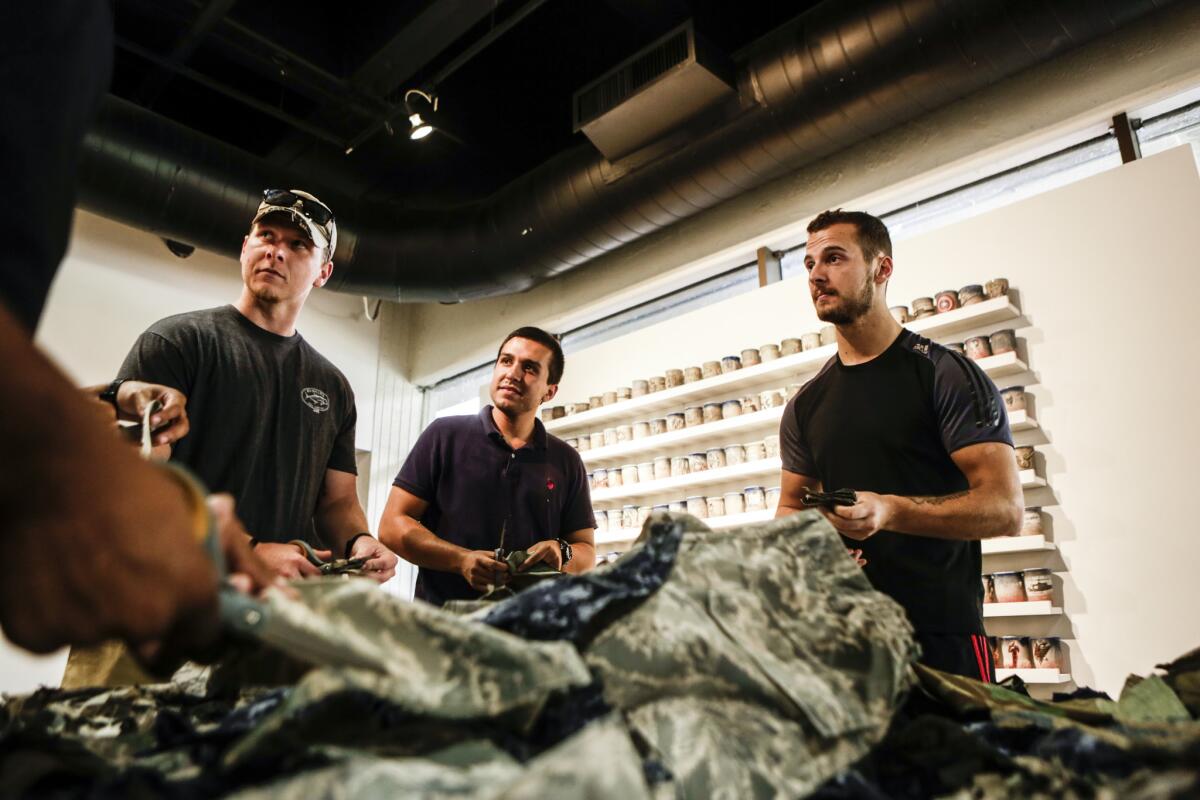
On a recent Wednesday afternoon, Drew Cameron leads a paper-making workshop inside Cypress College Art Gallery. He shows how rags are broken down to pulp via a Hollander beater and how that substance is transformed with a mold and deckle. The finished product: blank sheets in soft hues like khaki and light blue. If it weren't for piles of clothing waiting to be cut on tables throughout the gallery, you might never know that the source materials are military uniforms.
Cameron was born on a military base and, in 2000, at the age of 18, he enlisted in the Army. Three years later, he was deployed to Iraq. Upon his return, he tried to make sense of his experiences. "I was pretty upset with what I had been a part of, so I tried to distance myself from it," he says. Cameron moved to Vermont, where he didn't know anyone. He began working on art and paper-making became a way for him to explore the complexities of war.
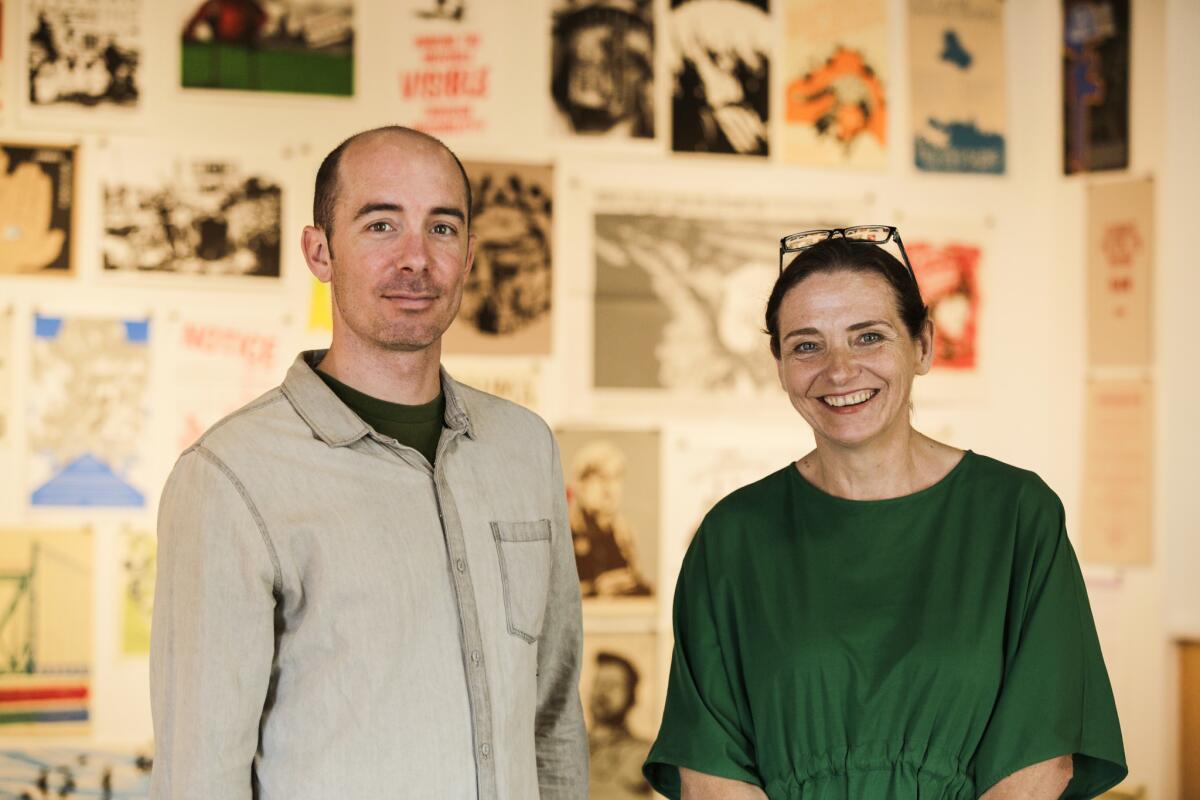
For more than a decade, Cameron, now based in Iowa City, Iowa, has toured the country with his ongoing project, “Combat Paper.” Part conceptual art, part craft tutorial, Combat Paper radically re-imagines military uniforms and Cameron has taken the project to schools, museums and veterans centers. The Cypress College demo was part of the exhibition "A Different 1%," which opened Sept. 26 and runs through Nov. 14. The show brings together artists who are veterans and whose work speaks to their experiences in the military.
“We as the 99% have a responsibility to understand that, since 1941 — if you include the Cold War — America has been engaged in war every year at enormous expense, financially, but also in human terms,” says Janet Owen Driggs, an art history professor at Cypress College, who is also the director of the gallery and the show's curator.
A quote on a gallery wall cites a 2013 New York Times article stating that less than half a percent of the U.S. population has engaged in military service. That's an important statistic to remember at the community college. Cypress College, which primarily serves north Orange County communities, has a student body of 15,500 students and an estimated 600 or so of them are veterans. According to Juan Carlos Garcia, veterans counselor and coordinator at the schools' Veterans Resource Center, that's about average for local schools.
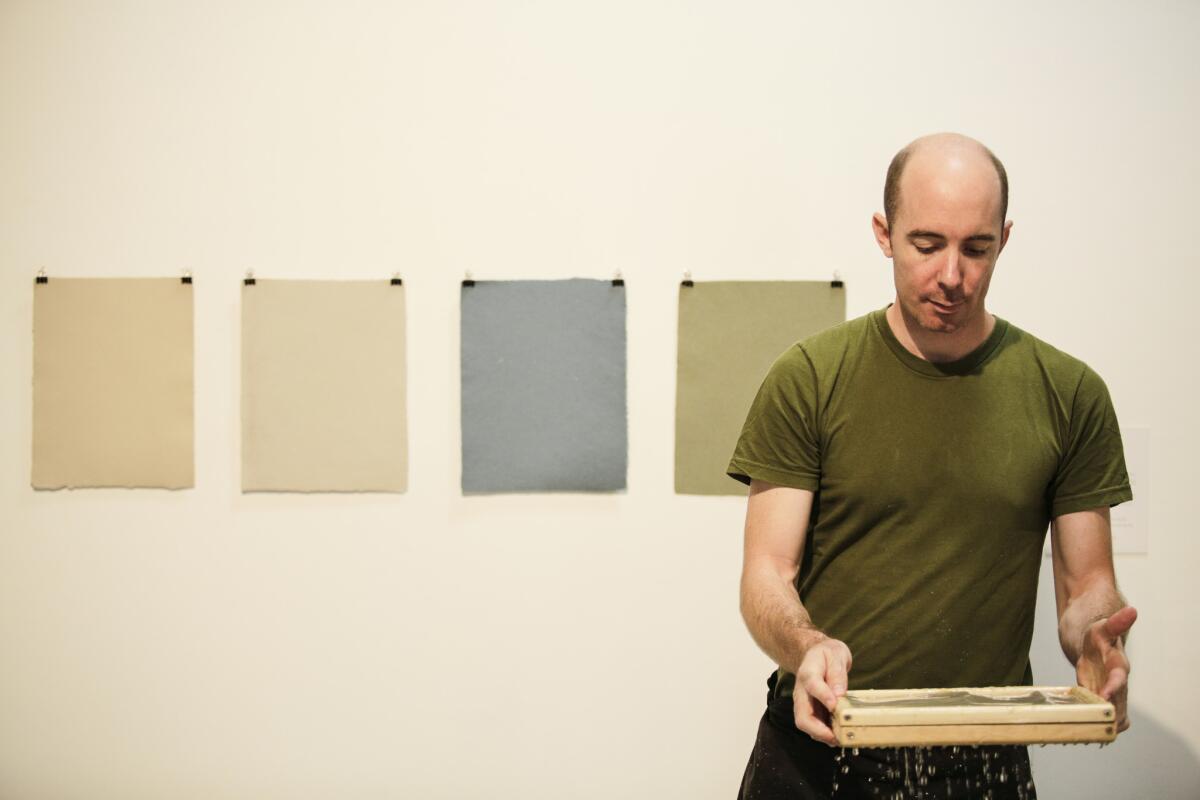
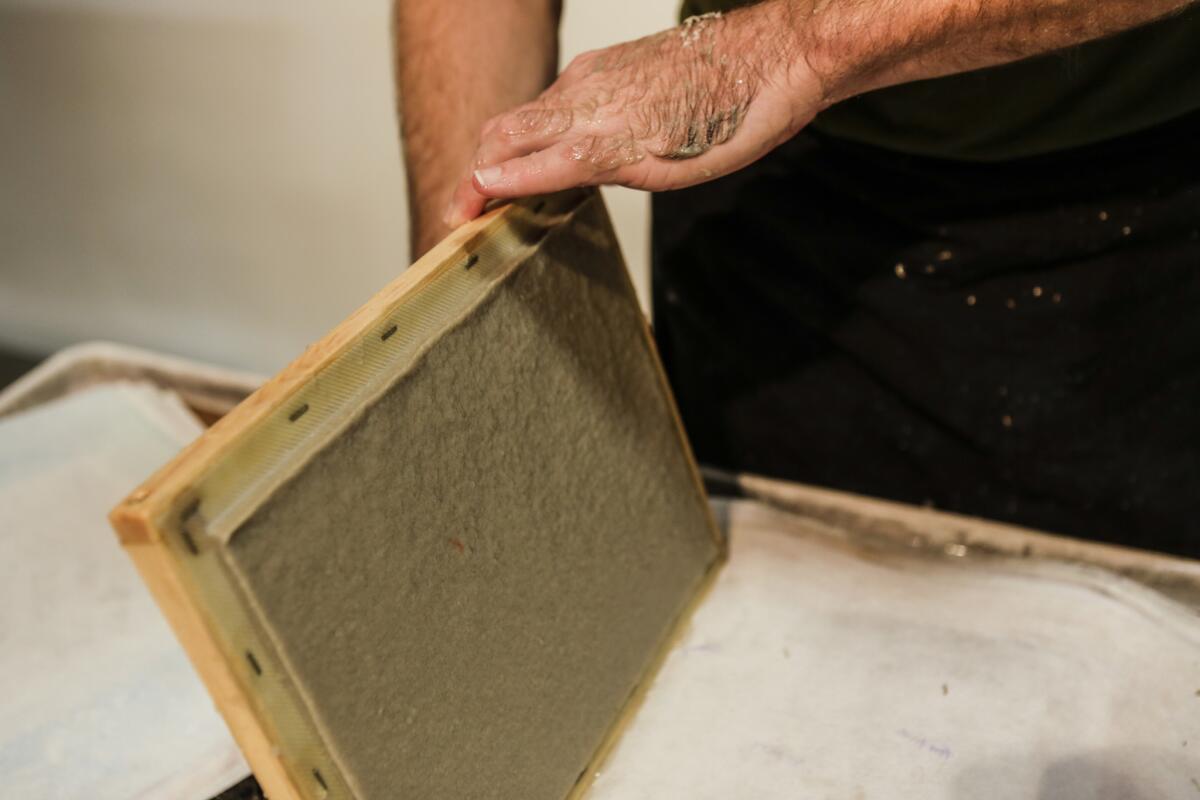
Veterans transitioning into civilian life may face hurdles that other students won't. "I think one of the biggest challenges that veterans face is loss of identity, the loss of structure that the military provides," Garcia, himself a veteran who served in the Philippines during Operation Enduring Freedom, says. But he also points out that there are stereotypes about today's veterans, like that "all vets have PTSD." "That's completely wrong," he says.
Challenging the common perceptions of veterans is part of the exhibition. "I think that what we tend to do is view the veteran as somebody who is broken and needs help or, conversely, as someone who is heroic," says Driggs. "A Different 1%" looks toward the diverse realities of veterans' lives. Posters made by members of networks like Iraq Veterans Against the War show activism that came out of military service. Meanwhile, an installation from photographer Amber Hoy provides a slice-of-life look into one woman's experience.
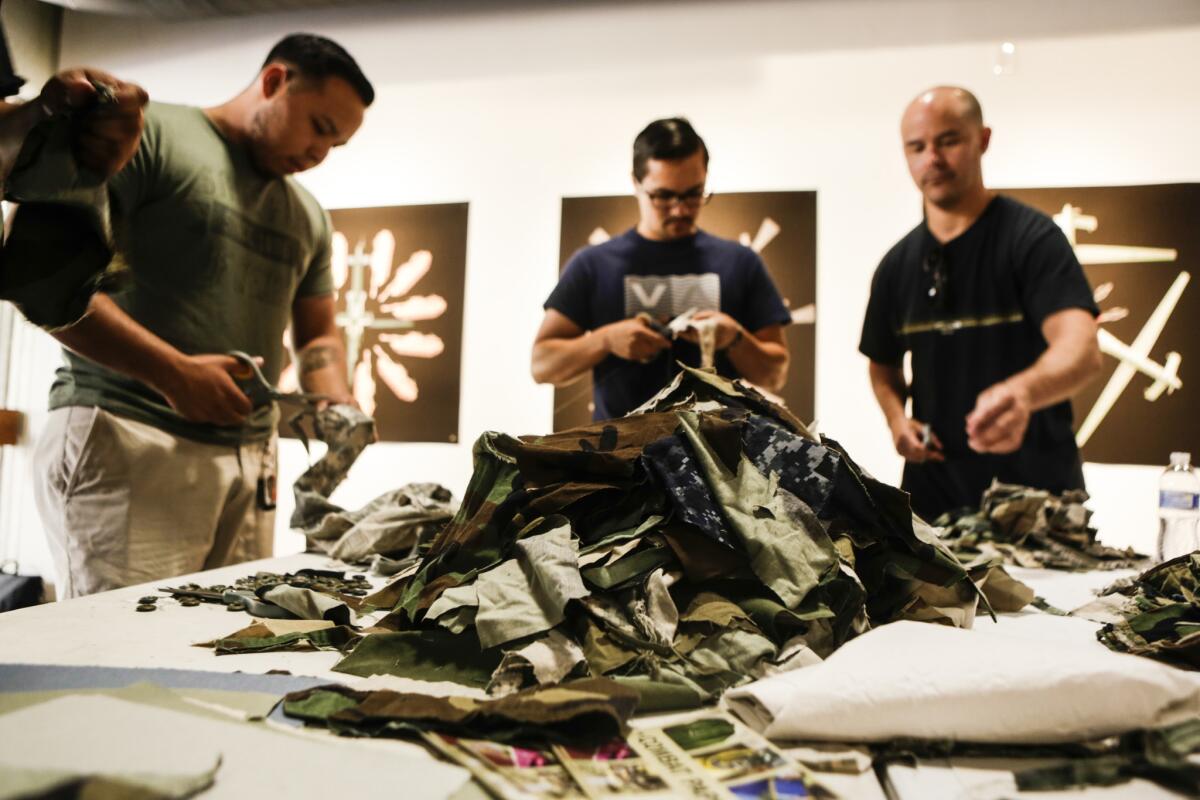
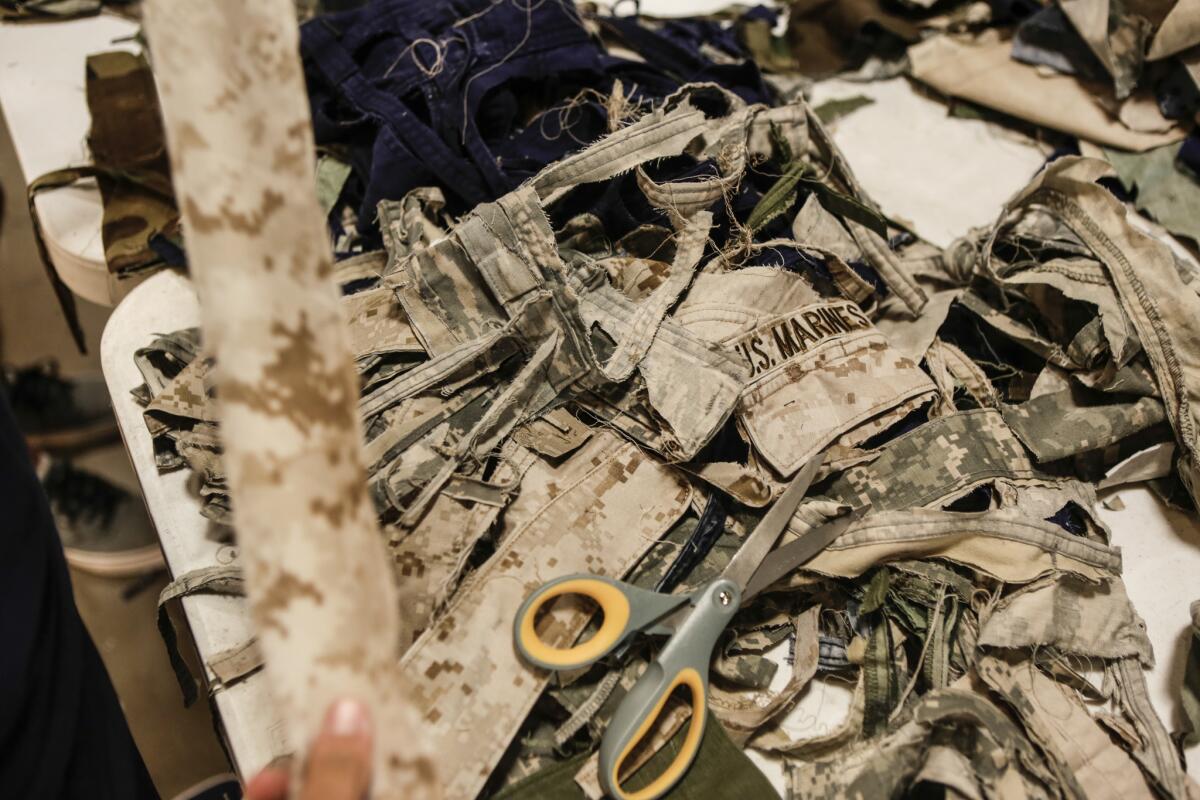
Artist Mark Pinto prompts viewers to question war. From 1982 through 2002, he was a Marine. He joined, he says, to become a pilot. He also ended up going to the Gulf War. For the show, he contributed "Weapons of Mass Delusion," where weapons appear in the shape of mandalas with messages written on them. "I want people to walk away and say, before we go to war again, we should consider the costs of war, the extended costs of war," says Pinto.
For the students, the works take on varied meanings. "I'm not very educated on [war] because I guess I have a disdain toward it," says Gianna "Gigi" Modaffari, who attended the workshop as part of a print-making class. The 19-year-old first-year student from Buena Park noticed works in the show that call out sexual assault in the military. "I know it happens, but seeing the sheer number of people who experience it is shameful, sad," she says, "but it's good to be aware about it and try to do what you can to stop it."
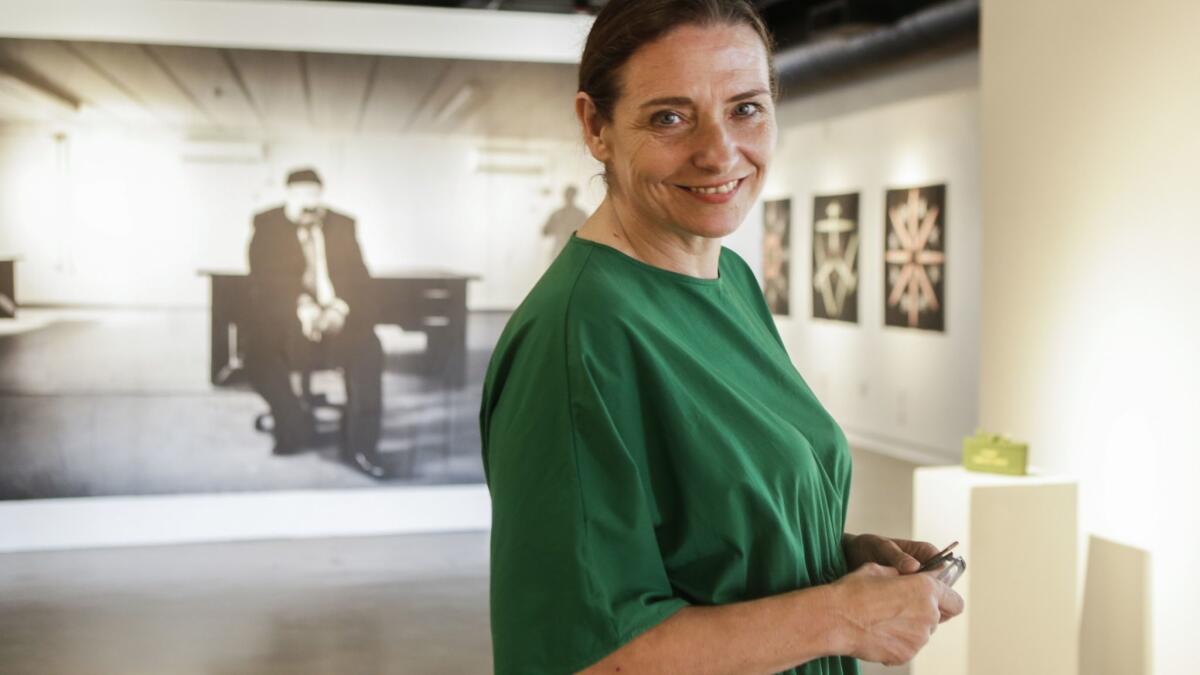
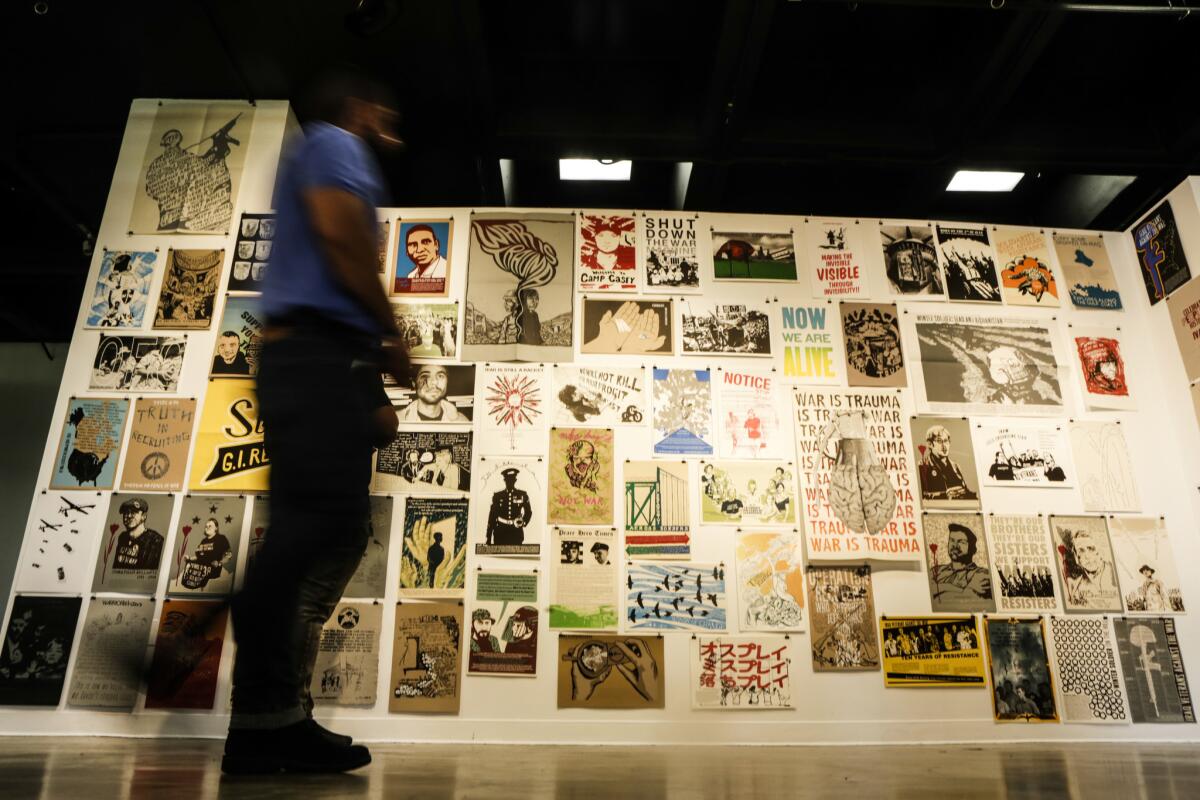
Jeremiyah White, a 20-year-old, third-year student from Anaheim, visited the gallery as part of a student government class. He's planning on entering the Marines soon, so the artworks took on a different significance. "It kind of made me a little hesitant, but at the same time, this is something that I want to do," he says by phone of his decision to enlist. "I think that America has the opportunity of being better than what it is and if I can fight for America to stay on track to becoming better, then I don't mind doing that."
As for the paper-making workshop, Cameron says there are multiple ways to view “Combat Paper.” The communal experience, though, is a significant act in moving forward as a society. "It's a call for people to write a different future. It's a blank slate waiting to be activated in a sense," he says. And it's a project that’s open to all, whether or not they've ever served in the military.
"I want everyone to feel as though they are invested because, in fact, all of us are," says Cameron.
“A Different 1%”
Where: Cypress College, 9200 Valley View Street, Cypress.
When: Sept. 26 – Nov. 14
The biggest entertainment stories
Get our big stories about Hollywood, film, television, music, arts, culture and more right in your inbox as soon as they publish.
You may occasionally receive promotional content from the Los Angeles Times.






